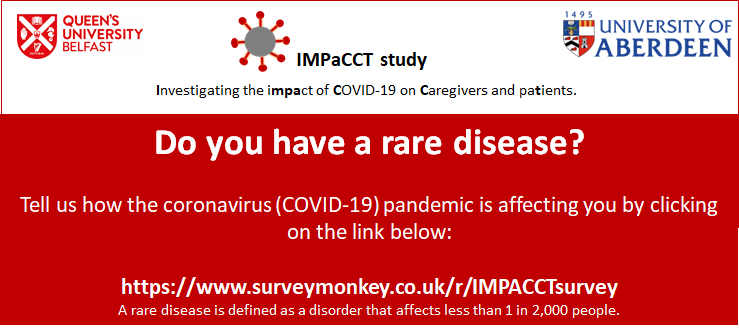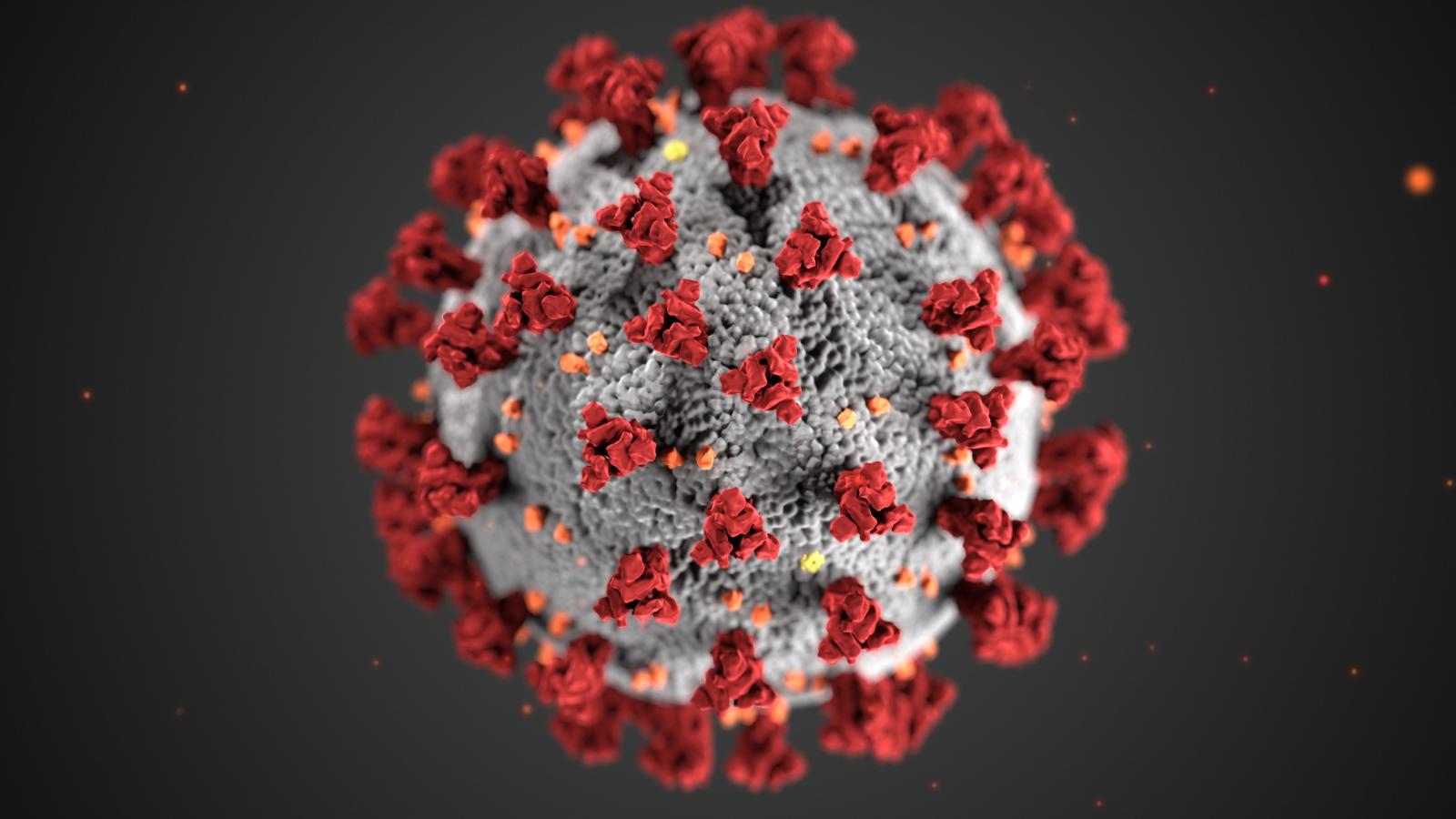Individual reports from Phase 1 IMPaCCT study

Background
Coronavirus disease (COVID-19) is an infectious disease caused by a virus which affects the lungs and airways. It first emerged in Wuhan City in China at the end of 2019. From there the virus spread to other countries worldwide with the World Health Organisation declaring it a pandemic on 12th March 2020.
The virus placed enormous pressure on health services which were faced with an increasing number of patients requiring respiratory assistance. As a result, normal care pathways were altered. In the UK, and many other countries, routine primary care and hospital appointments were delayed.
Rare diseases are defined by the European Union as those affecting fewer than 1 in 2,000 individuals, cumulatively affecting 1 in every 17 persons at some point in their lives. It is estimated that 350 million people globally have a rare disease. The ongoing COVID-19 global pandemic has disrupted many sources of support and care for those affected by rare diseases, bringing a range of impacts on healthcare, mental and physical health, social life and work life. The pandemic has highlighted the already too prevalent problems faced by our rare disease community.

General Survey
An online survey was conducted in Spring 2020 to assess the health, healthcare and psychosocial impact of coronavirus (COVID-19) on patients with rare diseases. The survey queried:
- Experience of isolating/self-isolating;
- Substantial life changes and reasons for such changes;
- How difficult these life changes have been;
- Challenges experienced when speaking to medical professionals;
- Concerns about the impact of COVID-19;
- Further information/services/support that would be useful;
- Improvements required to the support available;
The data was anonymised and analysed Thematically. Specific questions which provided written accounts on the impact of isolation and impact on care due to COVID-19 were selected for analysis. The responses given were searched for similarities and differences as well identifying the meaning of the answers given. Keywords and similar opinions were denoted categorical “codes”. The coded responses were then categorised into overarching Themes that captured all variable “codes” for a given question.
Respondents
Rare disease respondents
- 424 people with a rare disease (rare disease/rare cancer) responded to the survey.
- The largest number of respondents were 61-70 years old.
- 294 respondents reside in United Kingdom, 57 of those were from Northern Ireland.
Caregivers respondents
- 165 caregivers responded to the survey (8 cancer and rare disease / 157 rare disease)
- The largest number of respondents were 41-50 years old.
- 148 respondents reside in the United Kingdom, 6 of those were from Northern Ireland.
- Carer results were not sub-grouped by disease.
Individual reports have been drafted for rare diseases with a minimum of 6 respondents to the survey. These reports can be viewed below.
Addisons Disease report Phase 1 IMPaCCT
Behcets report Phase 1 IMPaCCT
Essential Thrombcythemia report Phase 1 IMPaCCT
Vasculitis report Phase 1 IMPaCCT
Conclusion
Restrictions and regulations to fight COVID-19 have ultimately exacerbated long-established challenges faced by the rare disease community as well as creating new issues that will have long-lasting effects. There was a wide and varied experience of lockdown reported by those who have rare disease. Both positive and negative responses were included, though there was a predominance of negative and challenging experiences. The diverse range of answers gives an important insight into what these challenges are. The main topics raised through the survey responses were information, long term uncertainty, the lack of practical support, missed social interactions, the changes in healthcare and the impact that is having on wellbeing, and the experience of dealing with healthcare professionals.
Going forward, the mental health aspects of living with a rare disease should be highlighted as equally important to physical aspects, as they often go hand in hand in maintaining patient wellbeing. Mental health services should be treated as a priority and should resume as soon as possible to deal with mental health issues faced by the rare disease community. Also, disease-specific or tailored advice for more vulnerable individuals would also serve to reduce stress and anxiety, and to reassure patients of their safety when attending hospital appointments, returning to work and shopping. These failures to address rare disease issues should be used as a learning curve to ensure problems are met not only in the extreme possibility of a future pandemic but especially under normal circumstances.
Thank you to all who contributed to this important research!

Media
For more information, please do get in touch via email

